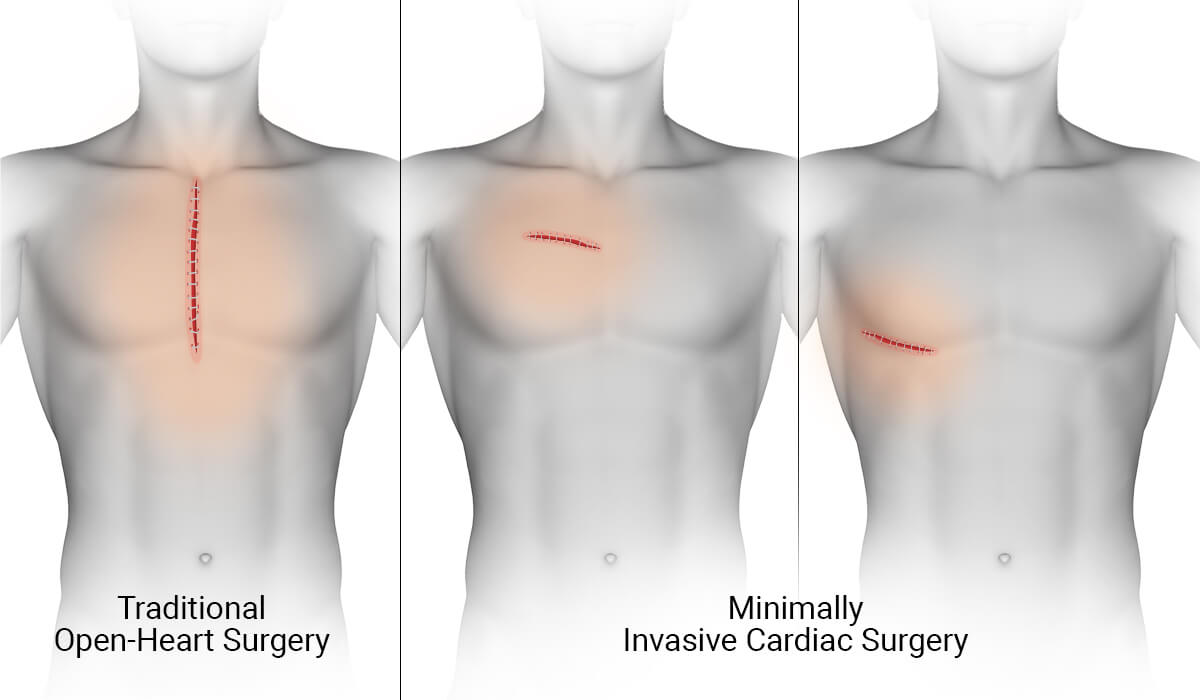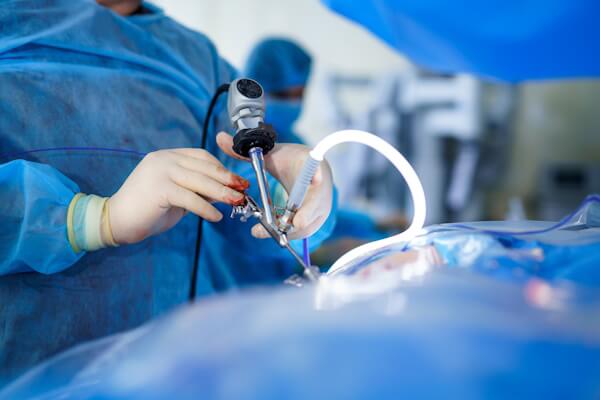Neglecting heart issues can lead to critical conditions like heart attacks or heart failure, which can be life-threatening if left untreated. In situations where medication alone cannot resolve heart-related issues, heart surgery becomes a necessary and urgent option. This is where Minimally Invasive Cardiac Surgery (MICS), often synonymous with Keyhole Surgery, emerges as a cutting-edge technique in the realm of heart surgeries.
As its name suggests, MICS or Keyhole Surgery is characterised by its minimally invasive nature. This technique involves using a select number of specialised instruments and a camera, which are inserted into the chest via small incisions comparable in size to keyholes. In certain MICS procedures, it might also be necessary to temporarily bypass the heart and lungs. This approach is extremely advantageous for a variety of heart conditions, providing surgeons with a more convenient and effective method for treating diverse cardiac issues.

 Faster Recovery Times
Faster Recovery Times Minimal Tissue Injury
Minimal Tissue Injury Reduced Blood Loss
Reduced Blood Loss Lower Infection Risk
Lower Infection Risk Enhanced Cosmetic Outcomes
Enhanced Cosmetic Outcomes Shorter Hospital Stays
Shorter Hospital Stays Quicker Return to Daily Activities
Quicker Return to Daily ActivitiesHCG Hospitals offers a spectrum of MICS procedures, including:

The primary advantage of Minimally Invasive Heart Surgery is the reduced impact on the breastbone, leading to less bone and tissue damage and a shorter recovery period post-surgery. Key benefits for patients undergoing Minimally Invasive Heart Valve Surgery include:

MICS also offers distinct advantages to surgeons, including:
While MICS (Minimally Invasive Cardiac Surgery) is typically less risky than traditional open heart surgeries, like all surgical procedures, it still carries certain inherent risks and challenges. Some of the potential risks involved with MICS include:
The post-operative phase following Minimally Invasive Cardiac Surgery (MICS) is a vital aspect of the patient’s journey towards recovery. At HCG Hospitals, patients receive meticulous care in our state-of-the-art Intensive Care Unit (ICU) immediately after surgery. This critical period involves close monitoring for any signs of complications. The duration of the ICU stay and subsequent hospitalization depends on the individual’s response to the surgery and the complexity of the procedure. Following ICU discharge, patients continue to receive specialized care, including pain management, physical therapy, and regular medical evaluations, to ensure a smooth and effective recovery.
Before proceeding with MICS, patients undergo a thorough evaluation process at HCG Hospitals. This comprehensive assessment includes a detailed review of the patient’s medical history, physical examinations, and a series of diagnostic tests to ascertain the suitability of MICS. Factors such as the patient’s overall health, the nature and severity of the heart condition, and any existing medical conditions are carefully considered. Our dedicated team is committed to determining the safest and most effective surgical approach for each patient, ensuring that MICS is the best option for their specific cardiac needs.
The cost of undergoing MICS at HCG Hospitals is influenced by various factors, including the intricacy of the surgery and the patient’s specific health requirements. Given the personalized nature of each procedure, we encourage potential patients to engage in a detailed consultation with our team. This discussion will provide a clearer understanding of the financial aspects related to MICS, including the breakdown of costs and available payment options.
HCG Hospitals takes pride in its team of heart specialists, comprising some of the most renowned cardiac surgeons with profound expertise in MICS. Our specialists are not only adept at performing advanced surgical procedures but are also committed to delivering personalized care. They work in tandem with a multidisciplinary team, including cardiologists, anesthesiologists, and nursing staff, to provide comprehensive care tailored to each patient’s unique health needs.
Opting for MICS at HCG Hospitals means entrusting your heart care to a leading cardiac center renowned for its exceptional medical care and advanced technological capabilities. Our commitment to utilizing cutting-edge technology, coupled with the extensive expertise of our medical professionals, positions us to deliver the highest quality outcomes for our patients. We are dedicated to maintaining our reputation as a premier institution for cardiac care.
For further information about MICS at HCG Hospitals or to arrange a consultation, please reach out to us at [insert contact details]. Our team is prepared to guide you through every step of the process, from initial consultation to post-operative care, and will happily answer any questions you might have regarding MICS and its benefits.
Book an Appointment